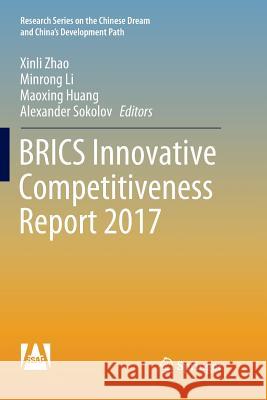Brics Innovative Competitiveness Report 2017 » książka
topmenu
Brics Innovative Competitiveness Report 2017
ISBN-13: 9789811340574 / Angielski / Miękka / 2019 / 325 str.
Kategorie:
Kategorie BISAC:
Wydawca:
Springer
Seria wydawnicza:
Język:
Angielski
ISBN-13:
9789811340574
Rok wydania:
2019
Dostępne języki:
Numer serii:
000904285
Ilość stron:
325
Waga:
0.50 kg
Wymiary:
23.39 x 15.6 x 1.91
Oprawa:
Miękka
Dodatkowe informacje:
Wydanie ilustrowane











